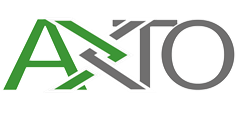Zoho Books’ usability, flexibility, and depth in standard bookkeeping areas (sales and purchases, time and project tracking, and inventory management) equals and sometimes surpasses what’s offered by competitors. Additionally, many accounting software allows third-party application integrations. In a service-based business, a time-tracking application could integrate with the accounting software Nonprofit Accounting: A Guide to Basics and Best Practices to add labor to a client invoice. The monthly subscription for this software can be upgraded as a business grows. In addition, the mobile app has many customization options that can be used to receive payments, review reports, capture an image of a receipt, and track business mileage. For businesses looking for a payroll solution, QuickBooks Payroll fully integrates with QuickBooks Online.
This is where software can save the day, cutting down on time spent on data entry and reducing errors that could negatively impact your financial health. But with so many options to choose from, how can you know which one is best for your business? We’ve compiled a list of the best bookkeeping software to help you decide. Zoho does offer additional add-ons for some flexibility in building a plan, such as an additional user for $2.50 monthly, and snail mails for $2/credit. This doesn’t include support for quotes, estimates or vendor bills, and has no cash flow forecasts, but it could be enough for start-ups as well as small businesses. It does support creating and sending invoices, it can create and send invoices, and offers automatic bank reconciliation.
The Best Bookkeeping Software for Small Business 2023
Bookkeepers of close sets, service groups, scout troops, networking groups, promoter clubs, sports clubs, HOAs, faith-based organizations, etc. After collecting the relevant paperwork from all areas of interest, the Receipt bank automates it and creates it for understanding – from provider portals and service suppliers to incomes divided into sections. Considering these cons, bookkeepers should carefully evaluate their needs and preferences before opting for QuickBooks. The Self-Employed Live Tax Bundle also gives you access to a CPA to answer questions throughout the year and during tax season. The CPA will also perform a final review of your tax return in TurboTax before filing. Still, Brightbook is a solid option for freelancers or independent contractors — specifically creative professionals.
- Usually, bookkeeping software has monthly subscription fees and also offers free trial periods.
- The only difference between the two is that the Established plan has additional features like multi-currency, expense management, and project costing.
- It’s owned by Intuit, which also has other options for small business and large ones too, with a diverse portfolio that includes Turbotax, Mint and Proconnect.
- Sage Accounting makes a good first impression with its clear and gimmick-free pricing.
- Its sheer flexibility makes it our top choice when it comes to accounting software for kitchen table businesses.
It delivers a surprisingly thorough free accounting system (and an refreshingly honest set of terms and conditions). Paid tiers include most of the features you’ll ever need, including advanced ones such as smart tagging, with advanced reporting and intelligence. The service comes armed with a full suite of tools, which can not only let you tackle your accounting chores, but can also be used to take on payroll and HR duties too. The most popular package is Standard, which comes with up to 500 contacts, 3 users and 10 automated workflows. Professional, meanwhile, is a full bells-and-whistles experience that offers 500 contacts, 10 users and 10 automated workflows.
QuickBooks Online Advanced:
These were then weighted to favor features that matter most to small businesses. NetSuite’s accounting software is all about automation, which can be a huge time-saver (and stress-reducer) for businesses. Automation features include things such as creating journal entries and statement reconciliation. We offer flexible plans and pricing to meet your needs and budget. Whether you just want help tracking receipts or you’re looking to automate complex workflows and support a large team, we have options for you. While you can do bookkeeping without accounting, you can’t do accounting without bookkeeping.
Our ratings consider factors such as transparent pricing, variety of features, availability of support and customer ratings. Most bookkeepers and accountants use the same popular software small-business owners do, especially QuickBooks Online, Xero, and Sage. Oracle NetSuite and FreshBooks are two other popular bookkeeper software options. Even though we generally prefer Xero to QuickBooks, QuickBooks Online remains the most popular accounting software for US-based accountants, bookkeepers, and auditing clerks. For instance, most virtual and outsourced bookkeeping services still use QuickBooks or proprietary in-house software—though some, like Bookkeeper360, also sync with Xero. To keep your books in order, Business.org recommends QuickBooks Online.
Best for Service-Based Businesses
Additionally, while there are some very good paid-for accounting programs around, there are also some great free accounting software solutions out there. While some of these are simply free tiers for paid software, others are freeware programs you can download and use without charge to help with budgeting. There are also time management apps that can integrate for use by consultants or freelancers who https://turbo-tax.org/best-law-firm-accounting-software-in-2023/ have a need to charge by the hour. Xero’s online accounting software is designed to make life easier for small businesses – anywhere, any time. Check out the Xero App Store to find, try and buy business apps that connect to Xero online accounting software and make running your small business even easier. Apps like Stripe, GoCardless, Vend, and Shopify connect seamlessly and sync data with Xero.
